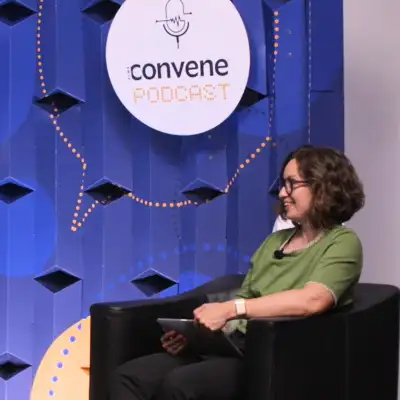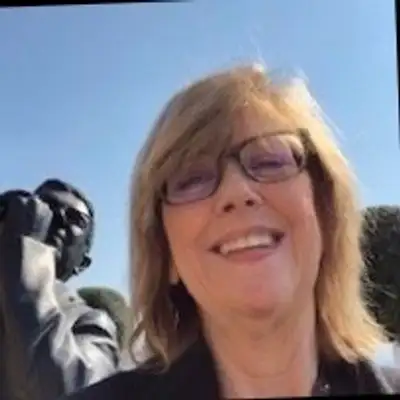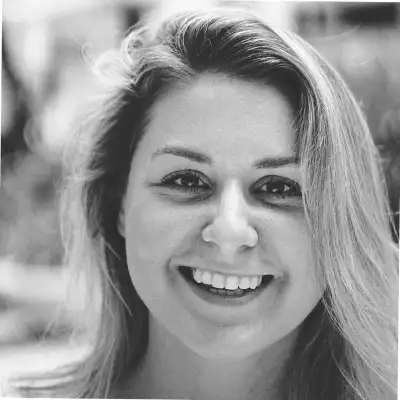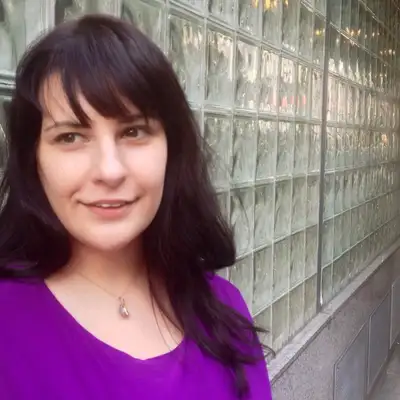Creators and Guests
What is PCMA Convene Podcast?
Since 1986, Convene has been delivering award-winning content that helps event professionals plan and execute innovative and successful events. Join the Convene editors as we dive into the latest topics of interest to — and some flying under the radar of — the business events community.
Convene Talk, ep. 80/Sept 26, 2025
*Note: the transcript is AI generated, excuse typos and inaccuracies
Magdalina Atanassova: This is the Convene Podcast. Welcome to another Convene Talk. Michelle, it's all yours.
Michelle Russell: Thanks, Maggie. So I picked a story from event marketer called 4 Insights on south by Southwest's Evolving Brand activation landscape for 2026.
I was really interested in was just how they're going to execute the event next year considering that the convention center has been raised and the new convention center is being built.
So like the central location for the event no longer exists.
And so it was interesting that I think they're just going to give dribs and drabs of their strategy. But the first drip we got was that they're going to have the event split across the city into mini badge specific neighborhoods.
And walking through each area will feel like stepping inside an immersive world designed for those who love film and television, made for people who live and breathe music, and dedicated to the folks who take bright ideas and make them a reality.
So I like that idea that they're going to create different pockets of Austin for specific topics and create different experiences.
And I like what he said about constraints. So he said that constraints often lead to creativity.
And I saw this and I spoke about this on our last podcast episode where the Creative Bureaucracy Festival took something that was a hindrance in one year where they just ignored it, which were these fenced in areas that held that behind the fence was construction, messy construction.
They just ignored it last year. This year they used it as an opportunity to put up signs for people to participate in with questions that they could put stickers on.
And it ended up being a very engaging space.
And it was interesting how something that could be seen as a challenge was turned into an opportunity. And I know that sounds a little simplistic, but it's also something that Bill Reed talked about on a recent webinar for the PCMA Learning Institute.
And he said that with budget constraints gives you an opportunity to look at things that you keep doing year over year that maybe you can stop doing because they don't.
Maybe they're not successful in terms of engagement. Like he said, formal award ceremonies and things like that.
So Barbara, what are you thinking about constraints and opportunities?
Barbara Palmer: I 100% agree with that concept of constraints driving creativity.
I mean, I've just experienced it over and over again. When you're back in a corner, you find new ways to do things.
What I found fascinating about this story was my conversation with the architects for the Austin Convention center, the one that's been raised and south by Southwest was one of the clients that they Talked, I mean, when they went to build this convention center, they talked to a bunch of clients and south by Southwest,
having been there since 1987 and being like one of the really signature events that really put Austin on the map for events,
they talked to them about their evolution. And I feel like I touched on this a little bit in the story that the new convention center is built in villages.
It's built to not be one experience,
but to be a kind of an environment where there's a lot of different experiences.
I think about it in the context of the evolution of technology and society.
Like south by Southwest started as a music event in all these great music venues that were in downtown Austin and then it was at the convention center and then as you know,
just TED talks became broadcast.
I mean,
I just watched a South by Southwest presentation for another story I was working on. I mean those presentations and the information that's presented to these large audiences is accessible everywhere.
What has become of luxury and of immense value are villages like where people can get together with people that share their interests and really connect with other people.
So I 100% agree with like using what is to create something better.
And I also see it as,
as the shift from value to experts that are dropping knowledge in a live audience and people going there to get that to people going to events to get that experience of a village.
The like minded people that gather together around film because they're harder to find in the big, big events and they're easier to find in the little. So Jen, I see.
I want to jump in do.
Jennifer N. Dienst: Sure. Thanks. Barbara. Yeah. What you're describing makes me think of Epcot for some reason. It's almost like instead of,
you know, different countries, it's like little countries of knowledge or little knowledge hubs or something. I don't know why that made me think of picture that. But when you were describing what they're going to be setting up, that's what kind of came to my, my brain.
No, I just, I just want to say I love this idea of using constraints for creativity.
I think it's so interesting what can come out of a situation where you have constraints put on you that feel impossible or insurmountable.
This was an idea I never really thought about or realized until I interviewed someone a few years ago. This was actually during the pandemic.
Well, actually just after the pandemic. This was ahead of PCMA education in 2022. And I interviewed Andrew Davis,
who's an author,
an expert in marketing and his keynote topic was about something called the Cube of creativity, which is basically where if you're really struggling with coming up with a solution for a project or an idea, whatever,
putting constraints on yourself can actually help you come up with solutions faster than you could without.
Instead of just like having a blank canvas essentially.
You know, basically it's this like very, almost. It seems like it's a counterintuitive approach to thinking outside the box, but it's actually something that can really help you.
Anyway, so something that he talked a little bit about was when I interviewed him was that,
you know,
at that time we were still in that kind of like in between world where we were kind of dabbling in hosting events online.
I mean, it was almost 2022, so we were maybe starting to come out of that a little bit.
But he said something that I thought was interesting. He said that he started to study why people were so unbelievably successful during the pandemic and why others kind of flailed.
And he said, I found in general that the organizers who didn't try to recreate the in person experience in an online world were far more successful than the ones who simply ported their offline experience into a virtual world.
The people that were wildly creative constrain themselves to the new medium. They tried to rethink what a good virtual experience would be.
The same is true for those pursuing hybrid experiences. They're asking themselves, what do attendees need to get out of a hybrid event?
We're defining a clear outcome instead of just saying we're giving people the option of attending virtually.
So I think in a way, when you look at like the Austin example, like, obviously it's very different, but they are constraining them like they're so constrained in this, in this way.
Like they don't have their, their typical venue, they don't have their typical footprint. So I think it's just, it's. I'm very excited to see what comes out of it and how and see what sticks after the convention center is done.
Maybe they'll keep something that worked for them. I don't know.
Yeah, I just think the idea of constraints, constraints is really interesting and seeing what comes out of it as a result, that works better than before.
Barbara Palmer: Barbara,
when you talked about constraints, it made me think about Dr. Seuss.
I didn't know this. His intent was to help kids learn to read.
And so the first books that he wrote, I think Green Eggs and Ham,
his intent was he used 50 words only.
The whole book is only 50 words.
And you just think about, like he Just really kind of launched this whole,
you know, Dr. Seuss is beloved.
And this whole like the creativity that comes from 50 words is pretty amazing.
So I feel like that's a good illustration of that point.
Michelle Russell: Michelle,
what I read is, is very similar to that is people think more freedom, more creativity, but the opposite is true. It's when you have like a frame,
it makes it easier for you to kind of, it's not optionless. You're now forced to deal with a certain, in his case, certain number of words.
And it, it just makes you, it's like instead of the paint spilling over the canvas over the frame, you have a frame and you create within the canvas is what I've seen.
But I did do a lot of ChatGPT and there are a lot of studies that show that this is true in terms of if you have to create something and you have to do it within a brand,
when you have brand guidelines, that helps you to be more creative rather than just thinking again, having limitless options.
So I do think there is something to this.
So when I interviewed Angelika Barzenik,
she said that why she thinks there is a pay disparity between event professionals and like minded industries is she looked at what McDonald's managers make and McDonald's managers make around the same salary as an event planner.
If you just say event planner, not an event planner that has management responsibility.
And she said the difference is that at McDonald's it's just like flying a plane that is on autopilot.
But for event planners, every event you are recreating the flight and the flight plan and what you're going to serve on the plane and all of those things.
And that's where creativity should be somehow rewarded. She thinks that's part of why planners don't think they make enough money, which I thought was a really interesting analogy. I didn't see fast food managers as being in the competitive set,
but in terms of salaries that is the case.
Magdalina Atanassova: Did you also notice in the article the question about attendee expectations? Because that certainly kind of caught my eye when Peter Lewis said that he thinks that today attendees are required to define their goals before they attend the event,
which I thought it is.
So are they doing it or is it. Are we still use the same analogy, flying on autopilot, right? We are just going to the same events in which we've invested just because we've always done it.
And I, I'm wondering, I'm wondering. I hope people are a bit more strategic when it comes to going to events. Because if it's not changing you,
then why go,
right? Why spend so much money and also lose so much time? And last time we spoke about leisure and how you, you know, you stack additional days on top of business trips and how important that is.
But also it. It kind of connects with me, right. If the first part has to be meaningful,
and then in the second part, you connect the dots.
Kate Mulcrone: Kate it was a real red flag for me when the festival officials said attendees need to do their homework before they come to clarify their purpose in attending.
Because to me,
yes, of course, everyone has their own individual reason why they really want to go to this event,
but I don't think that that that responsibility should rest entirely on the attendees.
I think the stakeholders planning the event should have five or six different elevator pitches in their mind about why you want to attend this event and not just sort of hunt that to.
Well,
for 40 years, people have done this, but now you need to just do your homework before you come to. To make sure that you want to come to south by Southwest.
It just seems really convenient.
Michelle Russell: I'm wondering if that has something to do with the geography of the event now, where it is. So, you know, because they have to spill out into the city,
that people have to be a little more intentional about what direction they want to take. Otherwise they're just going to find themselves wandering around in different neighborhoods without really knowing what they want to get out of it.
And I think part of that, part of the experience is getting what you were seeking to get at an event. Like,
you know, getting whatever you have this goal in mind, and you go there and you reach that goal. But part of it is also serendipity and things that you just can't plan for,
and that you leave thinking, I had no idea about this, but, wow, that really made an impact on me.
Barbara Palmer: Here's what I was thinking as you guys were speaking is that the willingness of south by Southwest to not just keep doing the Same thing for 40 years is making it possible for them to do it,
because they have,
in addition to their convention center. And I've never been to south by Southwest, but I've written about events that were.
That they put on in conjunction, you know, that brands did.
And they were so imaginative.
And, like,
I feel like one of them. I was almost there. It was just so exciting to hear about it.
And when Convening Leaders was in Austin,
there were some. They did some things that were really, that were near the convention center but were very innovative.
And I feel like the only reason that they can do this is because they've been investing in these experience all along.
Like, you couldn't take another.
Like, I can't imagine how you would do that if you hadn't been,
you know, kind of understanding what works and who your audiences are and how you would divide it up.
So it just, I don't know, it just makes me, it just when you were speaking, I just suddenly was like, oh, the value of these experimentation all along. Like, oh, we're gonna, we're not gonna just be content with what we know works, but we're gonna,
we're gonna invest in this and we're gonna iterate here. And I know they've done a lot of things that they've dropped. So I just thought that was super interesting.
I see you nodding, Kate,
and I.
Kate Mulcrone: Think this goes back to the comment that Jen made at the beginning of the discussion about the sort of Epcot like little bit of everything,
sample everything.
You don't know what you're going to get, but it'll be serendipitous.
But then I worry that because they have this badge centric neighborhood model while the convention center's under construction,
it's a little bit like you bought your ticket to EPCOT, but you can only go to some of the countries.
And I worry that that might take away from the experience for longtime attendees.
Unless of course they want to pay extra to get access to the whole festival,
which costs a little bit over a thousand dollars as opposed to buying access to.
Let me get it exactly right. You can buy the music only portion for $475,
film and TV for $700 and interactive for $785.
Or you can buy the full access for 1,165.
And so I would just worry about people who can't afford the full access not having the experience they were expecting.
Magdalina Atanassova: I don't know. I tend to disagree because it's such a huge thing and when you go to such large scale events, and I'm even thinking in our industry going to imax, you have to be strategic.
You know, you can't cover the whole ground, even though probably physically, yes, you can pass by all the boots, but you would never have the time to speak with everyone in each booth and get the full experience from all they offer.
So I'm thinking strategy and sitting. Making your own plans are important before going to events, no matter which,
especially if large scale. And this is so specific.
And I feel a lot of industry professionals go to the specific part. So that's why they've segmented it. And then there is these people that just want to go see everyone that's famous, you know, in each kind of in music, in TV and so forth.
So they try to make it happen.
So I would say I'd rather also in thinking of our own PCMA events, Convenient Leaders is. It's a massive event. I remember the first time going there as an attendee, I was like,
oh, gee,
what do I do here? I needed somebody to grab me by the hand and just tell me, just get in there. It will be great.
And that's why we also, our educational teams design some of these specific tracks just to make it a bit more manageable. Because when you're presented with so much choice,
you know, there will be serendipitous moments by default.
But how about the rest? Why do you want to be there?
Why do you go to your employer and say you need to pay for this trip to happen?
Or if you're even an independent planner,
why do you want to be there?
What's in it for you? How is it going to help you be a better professional the day after? So I'd urge actually professionals to do their homework and not leave it up to chance.
And I do know how hard it is when your plate is full and you're trying to deliver.
You know,
cover your own work and deliver and go above and beyond and then plan for an event.
And I met somebody last actually this year at Houston in Convenient Leaders, and this person said, you know,
my strategy this year is only keynotes and that's fine. I know I don't have time for breakouts. That's totally fine because I need to then sit in between the keynotes and just make a plan and deliver to my clients.
Because I'm an independent planner and I need to deliver. So that's what I just want to add.
Michelle Russell: Well, I think it was a great conversation. Thank you everyone for joining.
Barbara Palmer: Yeah, no, I enjoyed it. Good choice.
Magdalina Atanassova: Thank you.
Michelle Russell: Thank you all.
Magdalina Atanassova: Remember to subscribe to the Convene Podcast on your favorite listening platform to stay updated with our latest episodes. For further industry insights from the Convene team, head over to PCMA.org/convene. My name is Maggie. Stay inspired. Keep inspiring. And until next time.




